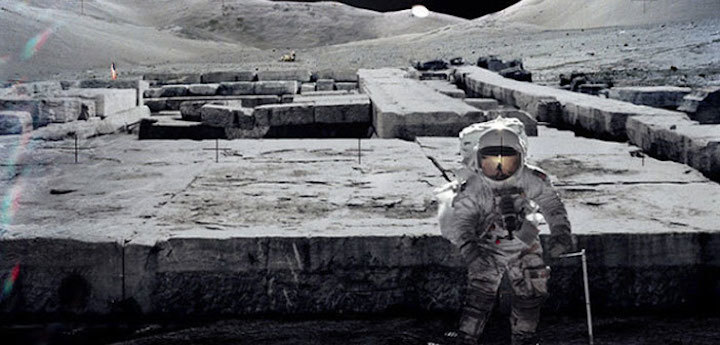6.05.2018

NASA’s successful launch Saturday of the InSight lander on an exploratory mission to Mars – costing taxpayers about $814 million – is just the latest example of the long fascination people have had with the Red Planet. The lander will study earthquakes – make that marsquakes – to learn more about our neighbor in the solar system.
And on Tuesday the three-day Human to Mars Summit kicks off in Washington to discuss the far more ambitious mission of sending men and women to Mars. NASA Administrator Jim Bridenstine is one of many NASA officials scheduled to speak, along with officials of companies interested in space exploration, scientists, engineers, people from the entertainment industry and many others.
This is all fascinating stuff that captures the imagination. We can’t help but think of “Star Wars,” Star Trek,” “The War of the Worlds” and other fictional works about “space – the final frontier.”
Humans have been wondering what’s on Mars for centuries, imaging at times that it was populated by intelligent beings, lined with canals, and all sorts of other things that have no basis in fact.
We now know that we don’t need to worry about Martians sending a fleet of spaceships to attack us. Sending humans there would do nothing to enhance our national security.
But curiosity is a strong human impulse. So it’s only natural that in addition to sending unmanned exploratory vehicles to Mars we pull out the national checkbook and spend billions of dollars to send astronauts there to explore for themselves, right?
Actually, it would be wrong. Sending humans to Mars – at least any time in the next few decades – would be a costly mistake.
Instead, we need to use our limited resources to return to the moon and set up a permanent base, and do more to protect our Earth-orbiting satellites. This is a mission our national security demands.
President Obama acted foolishly when he allowed our human spaceflight program to be basically zeroed-out in federal budgets approved during his time in office.
President Obama allowed Russia and China to catch up to the U.S. in manned space travel between Earth and the moon – our “backyard” in space – and what could be the ultimate high ground in a future war.
President Trump has the opportunity to reverse President Obama’s devastating and dangerous misjudgment and once again – following the example of President Kennedy – make America great again in space.
But this will only be possible if President Trump does not buy the Mars snake-oil that some – including companies standing to make massive profits on manned Mars exploration – are peddling.
Both China and Russia have made it known that the moon – and its eventual colonization – is now a “hard target” for them. Neither nation is going there to plant a flag and go home. They mean to stay.
Both these nations recognize that the moon offers unique and advantageous opportunities when it comes to both military and economic objectives.
So for the Trump administration, sending Americans back to the moon – to stay – should be the near-term human spaceflight mission of our nation. We should also strengthen our network of satellites to protect them from attack.
Setting up a permanent U.S. base on the moon and instituting measures to protect our orbiting satellites are long-overdue projects we need to prioritize.
Despite China’s denials, its space program is not designed for scientific discoveries – it is focused on military objectives. The same is true for Russia.
Leaders of Russia and China know that no nation is more dependent on satellites orbiting our planet for its very survival than the United States. So a key part of Russian and Chinese military strategy is figuring out how to knock out the satellites we depend upon for our national and financial security if we and they ever become enemies in war – not a cold war, but a hot one.
The Russians and Chinese have identified and are tracking every single one of our satellites that that make modern communication, weather forecasting, spying and other critical tasks possible. If they could destroy or disable our satellites – without fearing we could do the same thing to them – they could suddenly throw us back into the 1950s and could dictate terms of surrender.
Both NASA and our military have limited taxpayer money to spend in space. That money must be allocated only in the best interests of the American people. It cannot be wasted on unneeded, frivolous, or romanticized missions to Mars.
The moon is three days away. NASA’s InSight lander will take six months to get to Mars. Every mile in space adds to the risk and increases the odds of failure.
And sending people into space is far costlier and more complicated than sending unmanned craft – InSight doesn’t require air to breathe, food, water, waste disposal, protection from radiation and other life-support systems.
How many billions of taxpayer dollars will be spent on the first manned mission to Mars? Other than planting a U.S. flag on the surface – and more likely a flag of the United Nations in our politically correct times – what will really have been accomplished?
Certainly nowhere near enough to justify even a fraction of the cost.
It would be much better that those billions are spent getting our nation back to the moon and protecting our satellites in orbit.
We can enjoy all the films, TV shows and books about space travel that we want – without emptying the national treasury to try to turn science fiction into an unneeded and wasteful reality.
